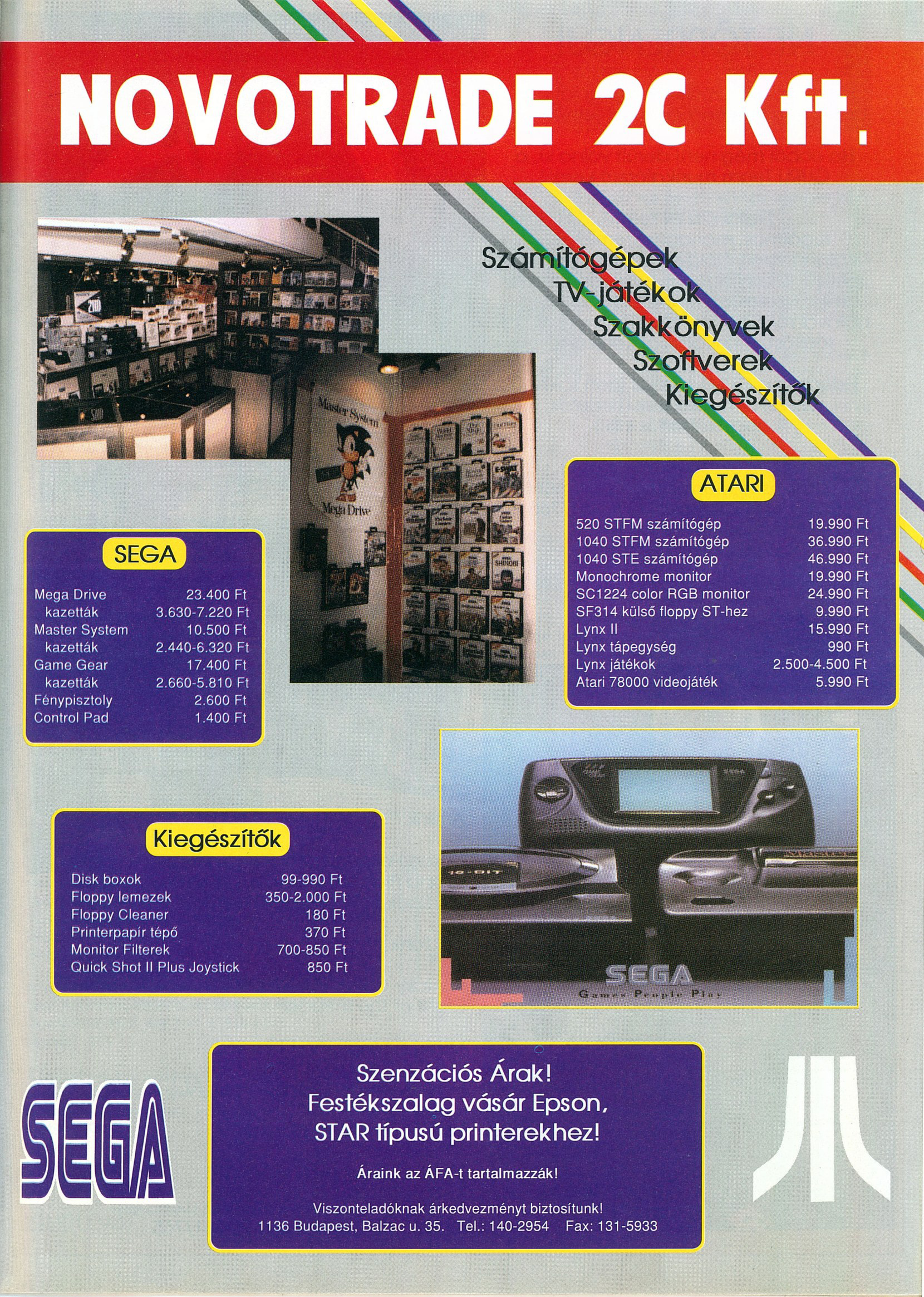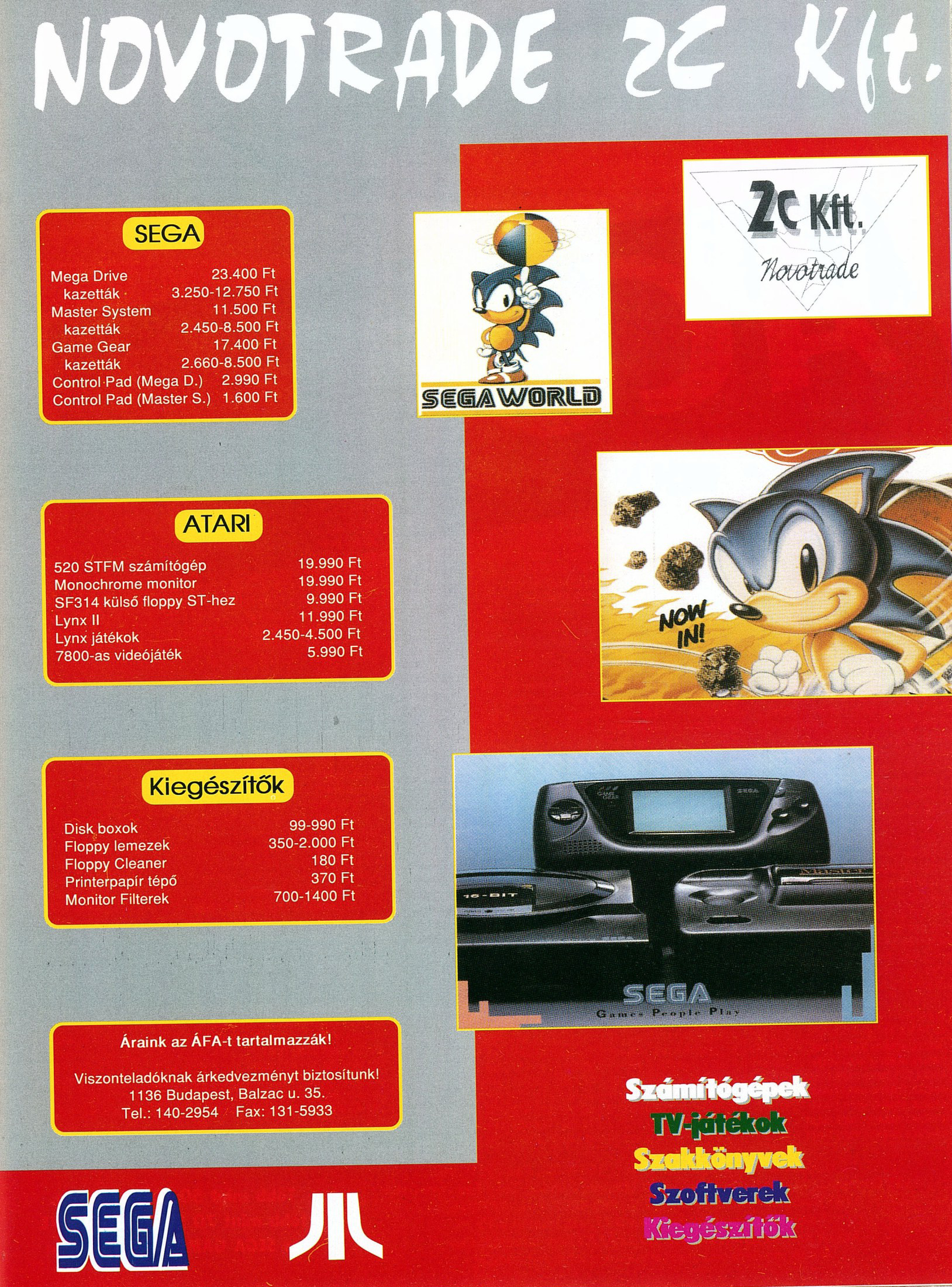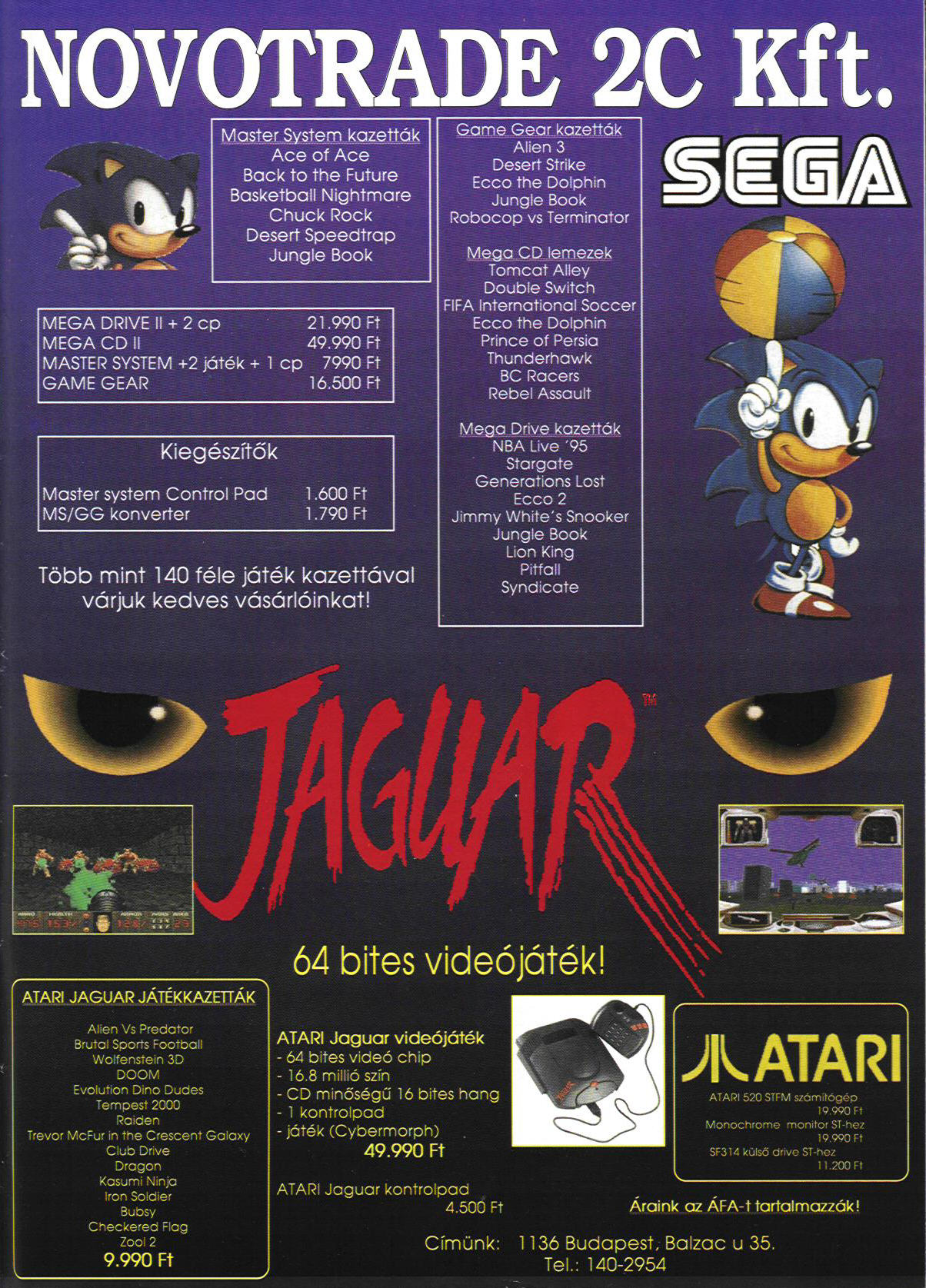Difference between revisions of "History of Sega in Hungary"
From Sega Retro
Lukdriver14 (talk | contribs) m |
Lukdriver14 (talk | contribs) m |
||
| Line 2: | Line 2: | ||
| flag=Flag HU.svg | | flag=Flag HU.svg | ||
| title= | | title= | ||
| − | | distributors=[[Sinus]] (1992) , [[Novotrade 2C]] (1992-xxxx), [[Ecobit]] (200x-200x), [[CD Projekt]] (200x-2014), [[Cenega]] (2014-) | + | | distributors=[[Sinus]] (1991-1992) , [[Novotrade 2C]] (1992-xxxx), [[Ecobit]] (200x-200x), [[CD Projekt]] (200x-2014), [[Cenega]] (2014-) |
| ratingsboard= | | ratingsboard= | ||
}} | }} | ||
Hungary began its transition away from Soviet-style communism in 1990, and like many of its Warsaw pact neighbours became a more attractive place for foreign Western investers as the decade went on. | Hungary began its transition away from Soviet-style communism in 1990, and like many of its Warsaw pact neighbours became a more attractive place for foreign Western investers as the decade went on. | ||
| − | In Hungary, official consoles appeared faster than in the rest of the countries of the former Eastern bloc. In 1991, Stadlbauer began to import Nintendo consoles. | + | In Hungary, official consoles appeared faster than in the rest of the countries of the former Eastern bloc. In 1991, Stadlbauer began to import Nintendo consoles. From the end of 1991, Sega consoles were sold by [[Sinus]]. They released the first model of Sega Master System. |
| − | Sega began to work with [[Novotrade]] in the creation of new games so it was decided to change the distributor to [[Novotrade 2C]]. They released [[Sega Mega Drive]], [[Sega Master System II]],[[Sega Mega-CD II]], [[Sega Game Gear]], [[Sega 32X]] and [[Sega Multi Mega]]. | + | Sega began to work with [[Novotrade]] in the creation of new games so it was decided to change the distributor to [[Novotrade 2C]] in October 1992. They released [[Sega Mega Drive]], [[Sega Master System II]],[[Sega Mega-CD II]], [[Sega Game Gear]], [[Sega 32X]] and [[Sega Multi Mega]]. During this time, Mega Drive became a very popular console and many events related to Sega were organized such as [[Sega Verseny 1994]] , [[I. Sega játékbajnokság]]. |
In the meantime, in Hungary appeared the famiclone Terminator 2 modeled on Sega Mega Drive and famiclones that look like Asian versions of Mega Drive in green boxes. | In the meantime, in Hungary appeared the famiclone Terminator 2 modeled on Sega Mega Drive and famiclones that look like Asian versions of Mega Drive in green boxes. | ||
Revision as of 11:23, 5 March 2020
This teeny-tiny article needs some work. You can help us by expanding it.

|
| History of Sega in Hungary |
|---|
| Official Sega distributor(s): Sinus (1991-1992) , Novotrade 2C (1992-xxxx), Ecobit (200x-200x), CD Projekt (200x-2014), Cenega (2014-) |
Hungary began its transition away from Soviet-style communism in 1990, and like many of its Warsaw pact neighbours became a more attractive place for foreign Western investers as the decade went on.
In Hungary, official consoles appeared faster than in the rest of the countries of the former Eastern bloc. In 1991, Stadlbauer began to import Nintendo consoles. From the end of 1991, Sega consoles were sold by Sinus. They released the first model of Sega Master System.
Sega began to work with Novotrade in the creation of new games so it was decided to change the distributor to Novotrade 2C in October 1992. They released Sega Mega Drive, Sega Master System II,Sega Mega-CD II, Sega Game Gear, Sega 32X and Sega Multi Mega. During this time, Mega Drive became a very popular console and many events related to Sega were organized such as Sega Verseny 1994 , I. Sega játékbajnokság.
In the meantime, in Hungary appeared the famiclone Terminator 2 modeled on Sega Mega Drive and famiclones that look like Asian versions of Mega Drive in green boxes.
Sega Saturn first appeared in early 1995 through illegal imports in 576 Kbyte stores. The console with one pad and the game Virtua Fighter cost 129999 HUF which was a huge price and hardly anyone in the country could buy this console. Official European console models appeared after late 1995 and cost 69999 HUF.
In 1996, TCI's technology group got the rights to distribute Sega Channel in Hungary , but it is not known that the service was launched there.
Sega Dreamcast have also arrived in Hungary, but not much is known about the distribution of these products.
After the Dreamcast console, Ecobit became the distributor.Sega games from Empire and Xplosive were distributed by EVM.[1]
Since 2014, Cenega has been responsible for the distribution of Sega PC products in the country, alongside Poland, the Czech Republic and Slovakia.[2]
In 1993, the Szegasztok series was created which focused on games for Sega consoles.





